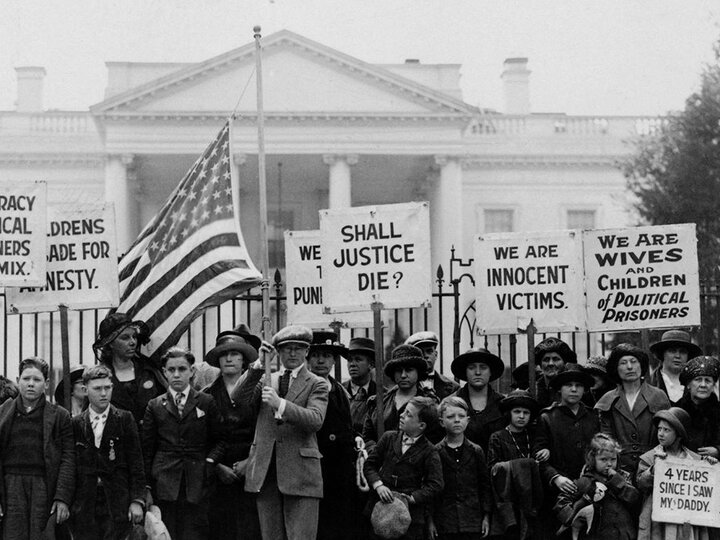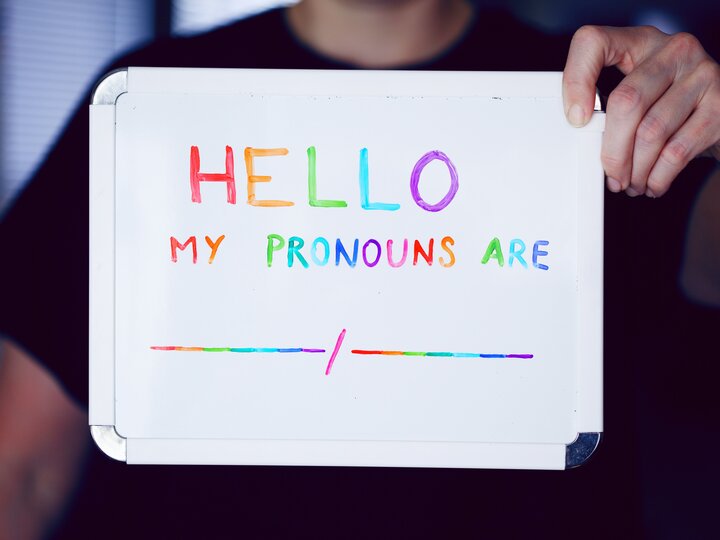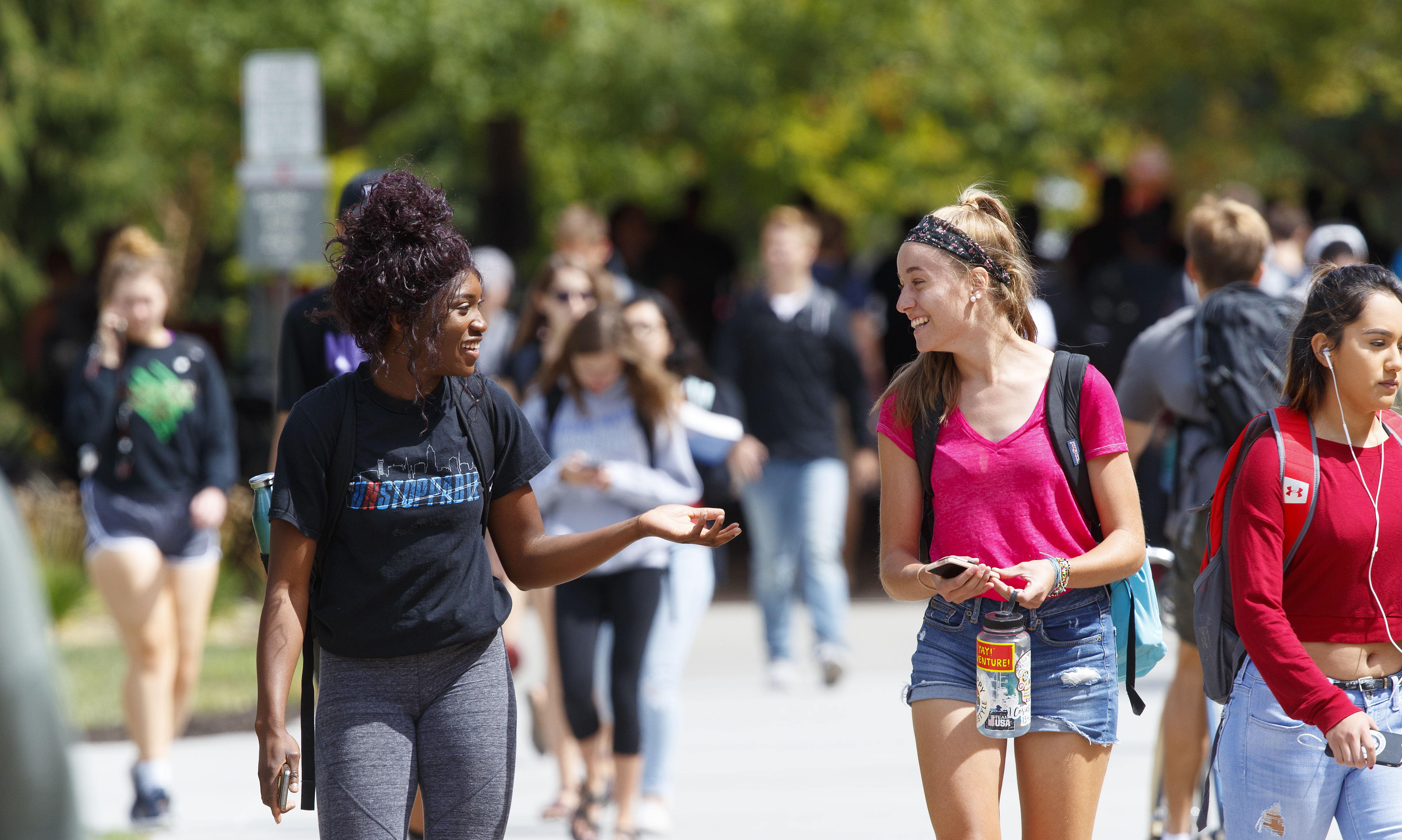Content
We are committed to offering courses that allow you to better understand and learn how to navigate some of today's most pressing challenges as you learn how to better advocate, negotiate, and relate across personal, professional, and public/civic contexts. Our courses are informed by cutting edge research around communication and relationships, health communication, and the rhetoric of media and civic life. Below are the upper-level courses for this semester.
If you want to learn more about the courses we offer, check them out in the undergraduate catalog, or reach out to Dr. Kathy Castle, Director of Undergraduate Education in Communication Studies kcastle4@nebraska.edu.
Remember we will offer several lower-level courses that can support your communication skills across personal, professional, and civic contexts. These courses include, but are not limited to, COMM 101 Communication in the 21st Century (ACE 2), COMM 202 Rhetorical Methods in Communication (with COMM 201 Social Scientific Methods in Communication offered in Fall semesters), COMM 209 Public Speaking (ACE 2), COMM 210 Small Group Problem Solving (ACE 2), COMM 215 Visual Communication (ACE 2), COMM 220 Communication, Public Advocacy, and Global Citizenship (ACE 8), COMM 250 Rhetoric of Media and Civic Life (ACE 5), COMM 283 Interpersonal Communication (ACE 2), and COMM 286 Business and Professional Communication (ACE 2).
Priority Registration: October 27 • Open Registration: November 12
COMM 311: Intercultural and Intergroup Communication
Staff
Do you want to improve your communication skills and competencies for personal and professional life in our diverse and global world?
Mixing theory, research, and applied learning, COMM 311 focuses on understanding how our cultural and social identities (e.g., race-ethnicity, religion, political, regional identities such as rural and non-rural) influence how we view and interact in our personal, social, and cultural or global relationships. Students will learn how our communication both affects and reflects these cultural and social identities as well as assumptions and biases associated with these identities. In addition to improved communication skills, students will exit the course with an enhanced appreciation of the diversity in our local and global communities as well as an understanding of the uniqueness of their lived experiences.
What to Expect
In addition to readings, discussion, and other in-class activities, students will have opportunities to engage in conversations or other events with those in our community from other cultural or social identity groups.
ACE 2 and 9 certified
Register in MyRed
COMM 315: The Empathy Project
Dr. Kathy Castle
We are in the midst of a crisis of loneliness that is contributing to our deteriorating physical and mental health, and at the same time, empathy - the social bridge that allows us to connect with each other - is on the decline in the US.
The Empathy Project is a response to this alarming trend. In this class, students will develop a nuanced understanding of empathy as a relational process, use evidence based strategies to help them cultivate and extend their own empathy with and for Others, learn how to better communicate empathy in their relationships, and explore how to take what they are learning to help others cultivate more empathy in a world facing an empathy deficit.
What to Expect
As a class, we will partner with The Human Library to provide students with opportunities to engage in evidence based strategies to cultivate their empathy as they interact with people from around the world who have agreed to share their stories of stigmatization and marginalization based on their identity and/or experiences in order to facilitate learning and understanding. Through these interactions as well as a series of readings, papers, reflections, in class activities and discussions, and projects, students will work directly with these concepts, theories, and ideas throughout the semester.
Instead of a textbook, students will purchase semester long access to the digital bookshelf at the Human Library ($40). If this is cost prohibitive and you still want to take the class, please reach out to Dr. Kathy Castle kcastle4@nebraska.edu
ACE 9, EL (Experiential Learning), CAS Diversity in the US (CDR)
Register in MyRed
COMM 330: Freedom of Speech
Dr. Casey Kelly
This course examines the foundations of speech as a democratic principle, investigating diverse perspectives on dissent, rhetoric, and the law, including sedition, fighting words, hate speech, obscenity, academic freedom, the free press, protest and free assembly.
This course investigates the law from a “rhetorical” perspective, meaning that we are primarily interested in how the law is both symbolic (how the law articulates, represents or fails to represent our collective interests) and juridical (how the law attempts to govern the speech act and symbolic expression). We will examine the historic and contemporary role of free expression in American society and its troubled relationship with the law.
What to Expect
Students will learn to articulate the legal, historical, and rhetorical importance of speech in a democracy; understand key court cases, legal precedents, and histories of free speech law; Apply legal and rhetorical principles to free speech issues, case studies, and concepts; and explain the value of free expression in public and professional contexts.
ACE 8
Register in MyRed
COMM 370: Family Communication
Staff
Throughout our lives, the various family relationships and roles we carry are tied to our personal well-being, self-concept, and even professional lives.
The overall aim of this course is to introduce students to theories and research on family communication with a specific focus on understanding and navigating family dynamics. Students taking this course can fulfill their ACE 6 requirement.
What to Expect
By engaging theories and research about interactions in families and communication about families, students will learn about the role of families in today's society as well as reflect on their own past, present, and future family relationships and functioning. Whether taking this class for personal insight or for professional considerations (e.g., family practitioner, counselor), the concepts and ideas covered throughout the semester are applicable to everyone's daily lives.
ACE 6
Register in MyRed
COMM 374: Mental Health Communication: Communication, Stigma, and (Dis)Connection
Dr. Angela Palmer-Wackerly
Today, among all age groups, we have higher rates of mental health concerns, including anxiety, depression, loneliness, and burnout, than ever before. People who understand how to effectively and appropriately communicate can play an important role in improving mental health for themselves and others around them.
We will examine how our mental health affects, and is affected by, communication within ourselves and our relationships, and how that communication affects mental health in organizations, communities, and policies. To accomplish this goal, we will explore theories and concepts that relate to how and why we use stereotypes, attitudes, and behaviors to manage the privacy, stigma, and promotion of mental health.
What to Expect
Throughout this course, you will complete assignments by yourself and others that increase your awareness of and improve your communication about mental health through 1) in-class learning activities, 2) team discussions, 3) diverse cultural analysis, and 4) creative projects that show how you will improve communication about mental health in today’s world.
ACE 2 certified
Register in MyRed
COMM 380: Gender and Communication
Dr. Allison Bonander
Gender permeates our society so deeply that we have color coded aisles in stores (pink / blue division isn't just for the toy aisle). Students in this course will gain an understanding of how our language, word choices, nonverbal communication patterns, etc. all influence and have the potential to challenge gender norms.
By passing this class students will engage with the multiple ways gender influences our behavior as individuals, in relationships, and as a society. Students will have the opportunity to examine the depths of gender's impact on our behavior, analyze it's influence, and use their knowledge to craft a final project to challenge social gender expectations.
What to Expect
Students will engage in one scaffolded final project of the available choices. Choices include, but are not limited to: podcast, social media campaign, and/or community impact project. Throughout this project students will work towards making the general public more aware of how gender influences our everyday experiences - and taking a critical stance to challenging, altering, and critiquing that expectation.

COMM 440: Rhetoric of Sports and Games
Dr. Aaron Duncan
The Rhetoric of Sports and Games invites students to explore how competition, identity, and persuasion intersect with language, storytelling, and symbolism make sports more than just games.
From online esports to the hard hitting world of the NFL to the pressure packeted tables of the World Series of Poker, the world is captivated by sports. Designed for upper-level students, this class blends theory and practice to examine sports and games on deeper rhetorical level. We will examine sports and games as locations where competition, identity, values, and culture intersect.
What to Expect
This course challenges students to think critically about how competition, fan culture, and media narratives shape our understanding of success, teamwork, gender, race, and national identity. Through documentaries, podcasts, and readings from both academic and popular sources, students will analyze the rhetorical power of sports as microcosm of human life.
This semester will feature a special guest lecture from bestselling author and World Series of Poker finalist James McManus.
Register in MyRed
COMM 470: Interpersonal Communication Theory
Dr. Haley Decker
Few (if any) forms of communication are more pervasive or more important to our personal and collective well-being than interpersonal communication. The way that we think about and understand interpersonal communication can radically alter our lives.
While interpersonal communication is often taken for granted, theory helps us understand the deeper aspects and processes of interaction that are often invisible, counterintuitive, oversimplified, or generally misunderstood. In this class, we’ll explore theories focused on understanding (a) how individuals plan and process messages; (b) how we create shared meaning in joint interactions; (c) how our talk affects and reflects identity; and (d) how communication develops, maintains, or ends personal relationships.
What to Expect
In this class, we will engage and apply interpersonal theories through readings, class discussions and activities, case studies, and creative projects. You will evaluate interpersonal communication research, apply the findings to your own personal relationships (and relationships of others), and develop and practice your own communication skills.

COMM 489: Capstone in Communication
Dr. Angela Palmer-Wackerly
You’ve spent years learning how communication shapes the world—now it’s your turn to use your knowledge, skills, and passion to tackle a real-world issue of your choice.
This Senior Capstone course is the culmination of your Communication Studies degree—a chance to reflect on your coursework and engage with research in a way that highlights your unique perspective and desired impact beyond the classroom. Alongside this project, this course also prepares you to confidently step into the next chapter of your life.
What to Expect
Throughout the semester, you’ll learn to plan, develop, and refine your project step by step—from initial idea to final presentation. You’ll also meet with Career Services, map out potential career opportunities, and interview someone whose work interests you. Designed with your future in mind, this course bridges academic learning and professional application to help you transition seamlessly from college to career.
ACE 10
Register in MyRed
